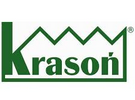Established in 1997 and headquartered in Poland, Grupa Krasoń has grown to become one of Europe's biggest producers of vegetable young plants. Specializing in high-quality seedlings, including a wide variety of tomato plants for greenhouse production, the company operates four major production locations in Piaski, Kisiele, Kowalew, and Święta, covering a total seedling production area of 24 hectares.
The company recently expanded one of its greenhouse facilities in Kisiele. "Our new greenhouse is equipped with the latest technologies such as a flood irrigation system with nutrient disinfection, robots for plant spacing and staking, and an automatic seedling sorting system," says Marcin Krasoń, the company's director.

The facility is developed with a hybrid lighting system including a mix of 50% high-pressure sodium (HPS) lamps and 50% LED lights, designed to provide a high intensity. This setup ensures optimal conditions for seedling growth year-round, especially during the darker winter months when natural light is limited. According to Marcin, the decision to use this lighting system was influenced by its versatility: "We produce all types of field vegetables, and the hybrid lighting system supports a universal light spectrum, essential for different plant varieties."
The Kisiele expansion, which began construction in June, was integrated with the existing infrastructure from the initial greenhouse launch in 2020. The new development covers an additional 4 hectares, bringing the total area dedicated to greenhouses, warehouses, and hardening space to over 10 hectares.

Combining automation and care
"A typical day in our greenhouse begins with monitoring and adjusting the environmental conditions using automated systems to ensure the best-growing conditions for the plants," Marcin explains. Robots handle plant spacing and staking, optimize space, and improve efficiency, while employees focus on quality control, plant care, and maintaining hygiene standards. Greenhouse vegetable young plants are irrigated using a flood irrigation system, ensuring precise water and nutrient delivery, while outdoor vegetable plants are watered with spraying booms, tailored to their specific needs.
During the busy greenhouse vegetable season, which runs through the end of January, Grupa Krasoń faces certain logistical challenges. "With Christmas and New Year falling midweek, it can be tricky to coordinate deliveries, but we manage to deliver approximately 1 million seedling blocks each week to customers in Poland and abroad," Marcin notes. To ensure both hygiene and freshness of the seedlings to their customer, the company uses its own fleet of 26 trucks, which allows full control over the delivery process.

Lighting systems for year-round seedling quality
Grupa Krasoń's hybrid lighting system is important in ensuring consistent, high-quality seedling growth. "The combination of HPS and LED lamps delivers the necessary light intensity and spectrum for robust plant development. While HPS lamps provide the high intensity needed for strong growth, the LED lights are energy-efficient and offer more precise spectrum control," Marcin explains.
The company plans to further refine its lighting systems. "We are continuously testing new lighting solutions. For the upcoming season, we will be converting one of our blocks to 100% LED lighting on a trial basis, to evaluate its potential for broader implementation," Marcin shares.

Crop rotation for healthy seedlings
"Having multiple locations allows us to produce field vegetable young plants simultaneously with greenhouse ones,"
Marcin explains, "In our greenhouse, this involves rotating between different types of vegetable seedlings, such as tomatoes and leafy greens, to prevent pests and diseases while maximizing efficiency." Advanced nutrient management systems are important in supporting these practices, ensuring that each plant variety receives the necessary care.
The company's young plant season is carefully structured, starting with sowing greenhouse tomatoes in October, followed by field vegetables like lettuce and Brassica vegetables in December. "The peak season for field vegetable young plants is from late April to mid-May, during which our four facilities dispatch 40 million young plants weekly," Marcin says. "Late June and early July are also busy periods, as we handle significant sowing of greenhouse tomatoes for lit production and large volumes of cauliflower and broccoli young plants destined for processing plants."

Energy efficiency and growth
Energy efficiency is another area where Grupa Krasoń is focusing its development. The new greenhouse facility in Kisiele is powered by natural gas, with two 2.7 MW cogeneration engines supplying both electricity and heating. "We were unable to connect this location to a power grid with the required capacity, which necessitated the use of gas and on-site electricity generation," Marcin explains. "Therefore, we opted for a combined heat and power (CHP) system. This system not only supplies the necessary energy for our operations but also helps maintain stable conditions for seedling growth throughout the year."

The company also plans to automate its oldest facility in Piaski soon, further enhancing operational efficiency. Additionally, Grupa Krasoń is already scouting for land to build a new greenhouse at a different location to optimize delivery times and better serve its growing customer base. "We produce around 500 million field vegetable seedlings annually, including Brassica vegetables like cauliflower, cabbages, and broccoli, along with leafy vegetables and field tomatoes. Grupa Krasoń has steadily expanded its export operations across Europe, supplying customers in Finland, the Baltic countries, Germany, the Netherlands, and several Central and Eastern European nations," Marcin concludes.
For more information:
Grupa Producentów Rozsad Krasoń
Kisiele 40
97-340 Rozprza
Tel.: (+48) 44 732-59-95
http://www.krason.com.pl/
biuro@krason.com.pl
